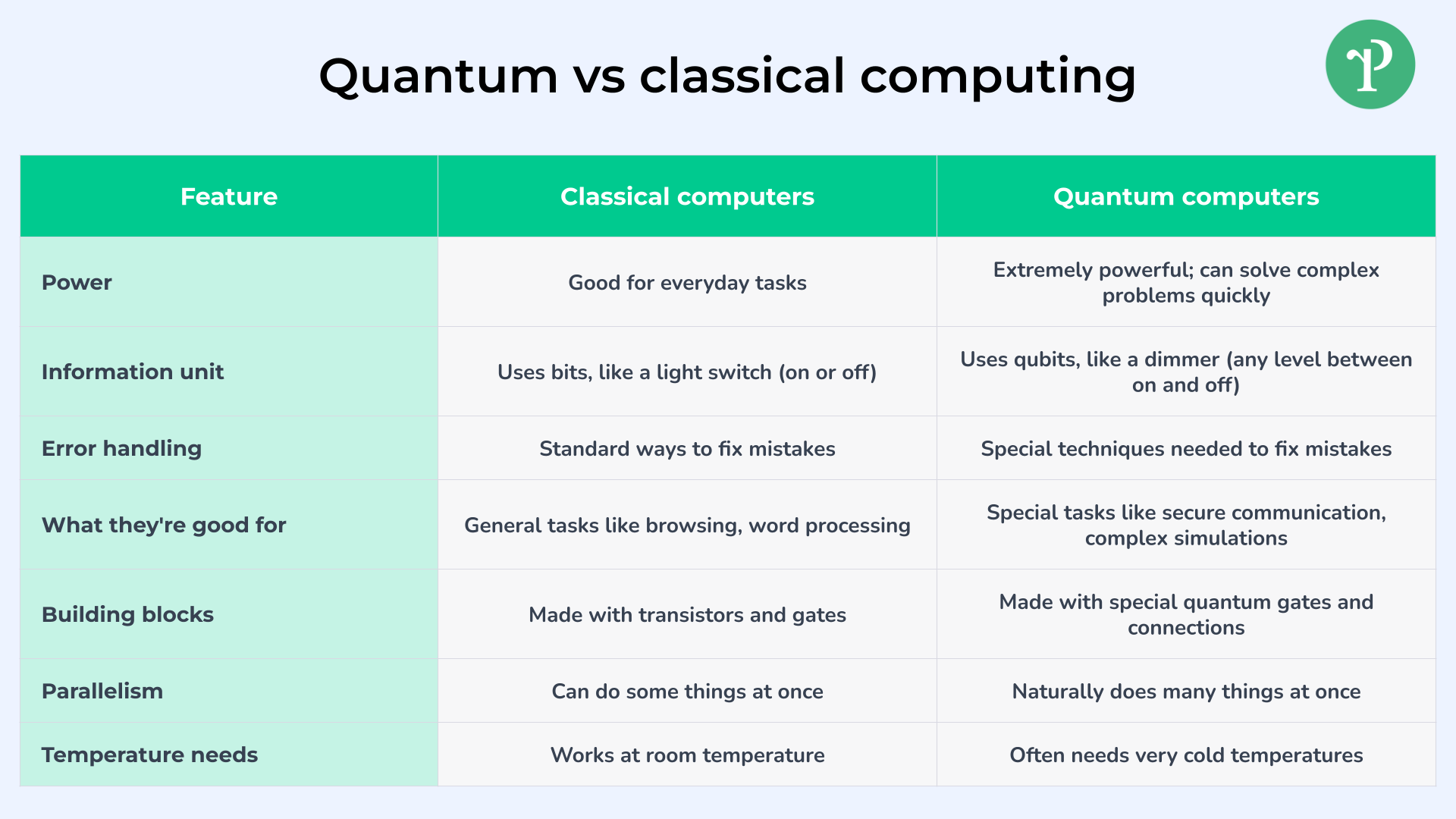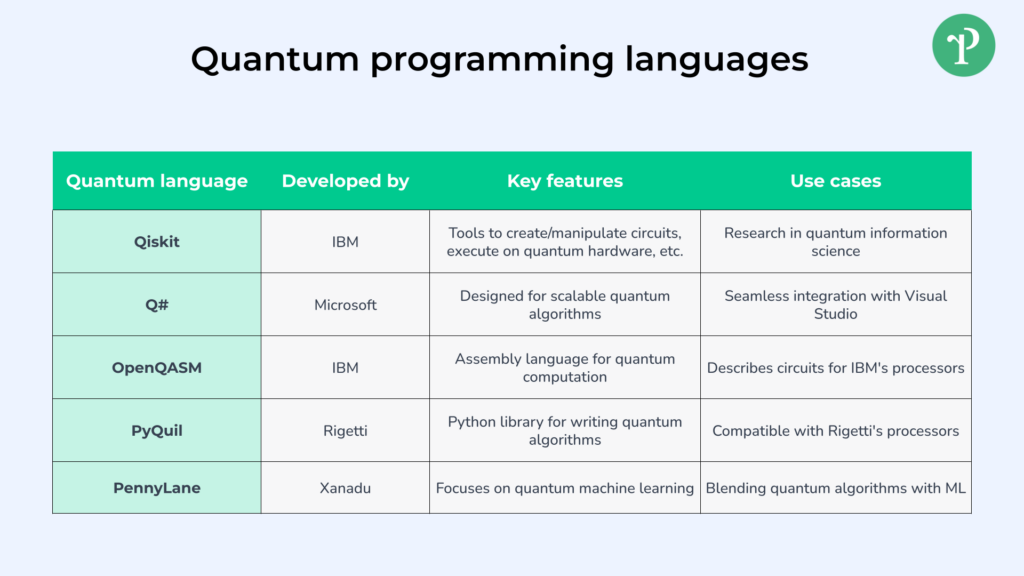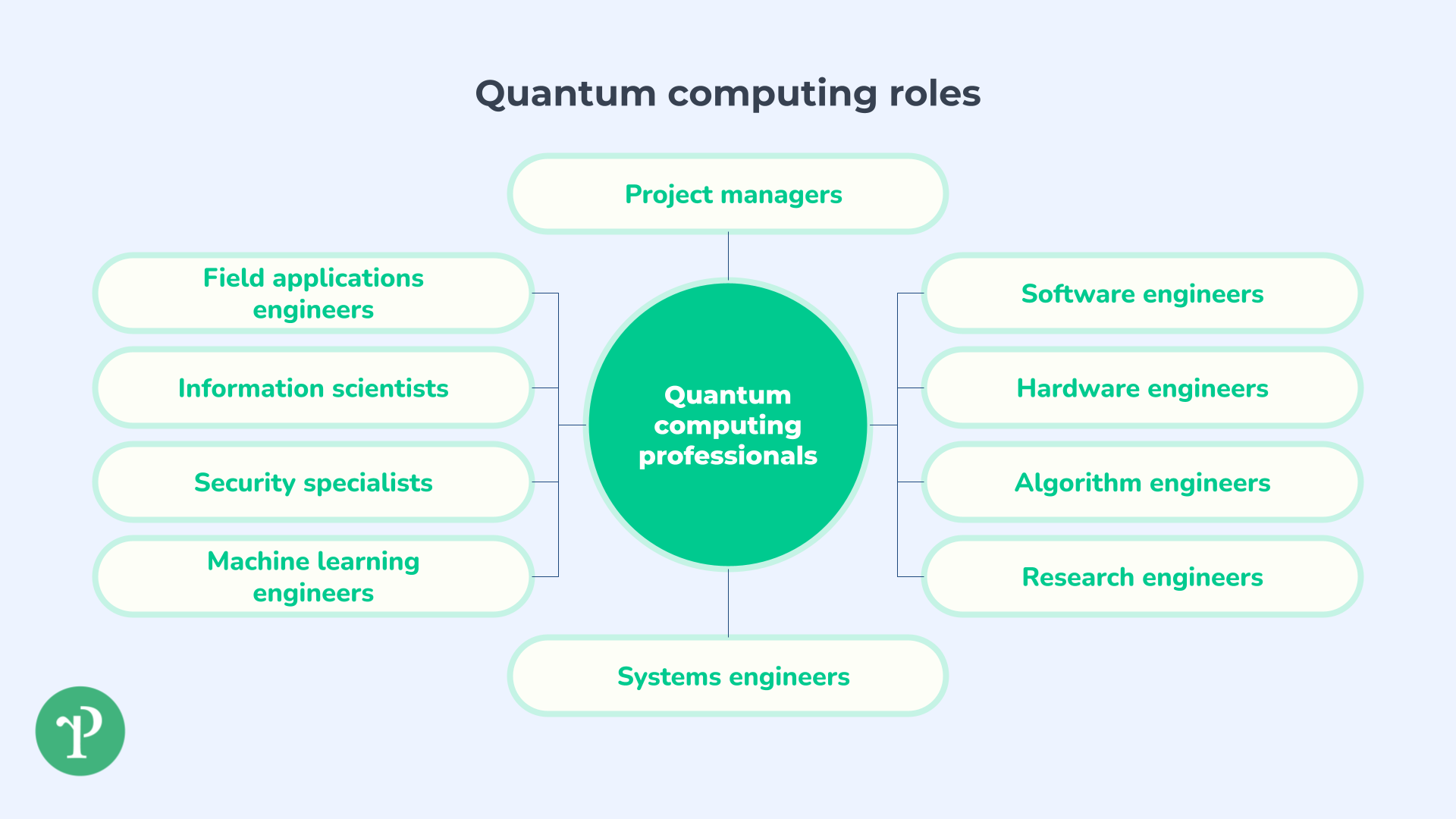Quantum computing is a cutting-edge field that’s changing the way we think about technology. Imagine a computer that’s incredibly more powerful than anything we have now. These super computers use something called quantum bits, or qubits, which can do a lot more than the regular 0s and 1s in today’s computers.

It might sound complex, but here’s what you need to know: Quantum computing is making big waves in areas like medicine, finance, and technology. And behind all this are quantum engineers, who use special programming languages to create this future.
In this article, we’ll explore the quantum computing programming languages and libraries used by quantum engineers, dive into their specific roles and the innovative projects they undertake, and discover how they are shaping the future of technology with quantum computing.
Quantum programming languages and libraries
Quantum engineers rely on specific quantum programming languages and libraries to create, manipulate, and execute quantum algorithms.

Let’s take a closer look at some of these essential tools:
Qiskit: Developed by IBM, Qiskit provides tools to create and manipulate quantum circuits, execute them on real quantum hardware, or simulate them on classical computers. It enables research in quantum information science.
Q#: Microsoft’s quantum programming language, designed for writing scalable quantum algorithms. It can be used with Visual Studio for a seamless programming experience.
OpenQASM: An assembly language used for quantum computation. It describes quantum circuits that can be run on IBM’s quantum processors.
PyQuil: A Python library used for writing quantum algorithms compatible with Rigetti’s quantum processors.
PennyLane: This library focuses on quantum machine learning, providing tools for blending quantum algorithms with traditional machine learning techniques.
Quantum computing roles

Quantum software engineers
Quantum software engineers are engaged in writing quantum programs and manipulating quantum circuits to achieve goals like enhancing drug discovery and accurate weather forecasting. Businesses like IBM and Google employ these engineers to create quantum algorithms for projects like optimizing the quantum approximate optimization algorithm.
Languages they use
Tools like Qiskit and Microsoft’s quantum programming language, Q#, are essential for these professionals. They manipulate quantum circuits, utilizing quantum development kits, and work on quantum simulations to make profitable decisions in quantum computing concepts.
Quantum hardware engineers
Quantum hardware engineers focus on building quantum computers, developing prototype quantum devices, and ensuring quantum systems function seamlessly. Rigetti Computing and IonQ employ these experts to craft quantum circuits, leading to high-speed processors or ultra-secure communication systems.
Languages they use
Quantum assembly language and development kits like OpenQASM, IBM quantum experience, and Azure Quantum are often part of their toolkit for crafting quantum programs.
Quantum algorithm engineers
Quantum algorithm engineers design quantum algorithms that may enhance traffic flow in smart cities or financial data security. Microsoft and Alibaba hire these professionals to explore areas like quantum machine learning, using quantum computations where classical computers may struggle.
Languages they use
High-level programming languages like Silq and quantum software development kits enable them to manipulate quantum programs and innovate in computer science and quantum mechanics.
Quantum research engineers
Quantum research engineers work on photonic quantum computing, exploring new quantum systems and experimenting with quantum lambda calculi. MIT and D-Wave collaborate with them on research leading to energy-efficient materials or medical imaging techniques.
Languages they use
Quantum software development kits and quantum simulation tools, along with quantum lambda calculi, are vital for their quantum measurements and explorations.
Quantum systems engineers
Quantum systems engineers work on quantum system integration, building quantum simulators for quicker financial modeling or climate simulations. Honeywell and Intel leverage their skills to create tools that bridge the gap between quantum and classical computers.
Languages they use
Languages like PyQuil and tools like Rigetti’s Forest enable them to manage quantum measurement outcomes, write quantum programs, and manipulate quantum programs.
Quantum machine learning engineers
These engineers utilize quantum measurements and quantum algorithms in AI, leading to innovations like efficient facial recognition or online shopping experiences. Xanadu Quantum Technologies and QC Ware engage them for quantum machine learning.
Languages they use
Tools like PennyLane are essential to creating algorithms for quantum machine learning, and they use quantum measurements for data analysis.
Quantum security specialist
Quantum security specialists work on using quantum principles to enhance cybersecurity and develop encryption techniques that are resistant to quantum attacks.
They focus on ensuring that sensitive data remains secure even in the face of advanced quantum computing capabilities.
Leading cybersecurity firms like Quantum XSecure and QubitGuard rely on the expertise of quantum security specialists to fortify their encryption methods against emerging quantum threats.
Languages they use
Quantum security specialists are skilled in utilizing quantum programming languages and libraries like Qiskit, Q#, and PennyLane. These tools enable them to implement strong encryption methods that can withstand quantum attacks and contribute to ensuring data protection in a quantum-powered world.
Quantum information scientist
Quantum information scientists study the theoretical aspects of quantum information and computation.
These scientists play a crucial role in advancing our understanding of quantum phenomena and exploring the potential applications of quantum information theory.
Languages they use
Quantum information scientists rely on specialized programming languages and libraries, including Qiskit, Q#, and PyQuil. These tools allow them to simulate and experiment with quantum algorithms, pushing the boundaries of quantum information science and contributing to the development of innovative quantum technologies.
Quantum field applications engineer
Quantum field applications engineers bring quantum technologies from theory to practical applications.
They collaborate with various industries to identify opportunities where quantum computing can provide innovative solutions.
QuantumSolutions and Q-Industries collaborate with Quantum Field Applications Engineers to apply quantum solutions to real-world challenges in finance, healthcare, and logistics.
Languages they use
Quantum field applications engineers leverage programming languages and libraries like Qiskit, Q#, and PennyLane. These tools empower them to develop tailored quantum solutions that address specific industry needs, showcasing the potential of quantum technologies to revolutionize various sectors.
Quantum project manager
Quantum project managers oversee quantum computing projects, ensuring that goals are met, timelines are followed, and collaboration between different quantum professionals is facilitated.
They play a pivotal role in coordinating and managing quantum initiatives, ensuring their successful execution and delivery.
QuantumTech Projects and Q-Works rely on Quantum Project Managers to manage and orchestrate their quantum initiatives, ensuring successful project outcomes.
Languages they use
Quantum project managers utilize their organizational and management skills to facilitate collaboration among quantum professionals. While they may not directly engage in quantum programming, their proficiency in project management tools and methodologies ensures that quantum projects are effectively coordinated and yield impactful results.
Conclusion
Quantum engineers are at the forefront of technological advancement, from quantum physics exploration to quantum software and quantum computer hardware creation.
The standard quantum computational models they develop pave the way for advancements in various fields, including medicine, finance, and security.
Their work not only enhances quantum mechanics understanding but also shapes the quantum programming world and our future.
Their roles, languages, and real-world applications are a testament to a world brimming with innovation and promise.













